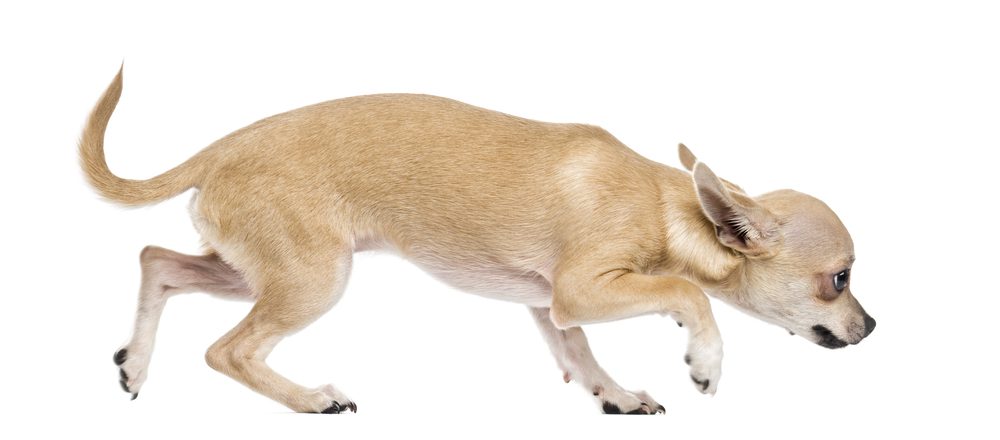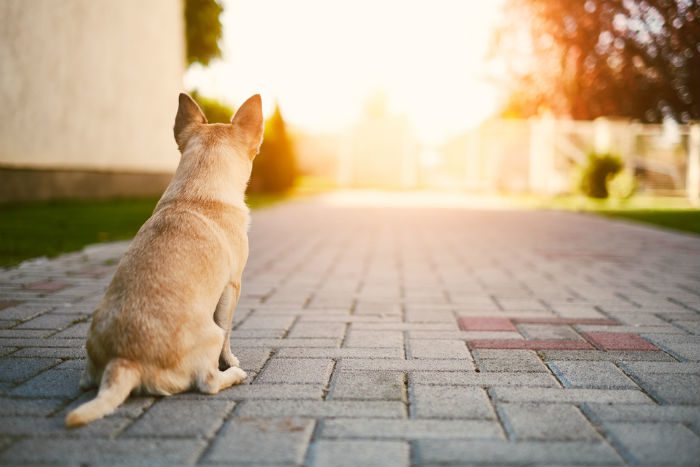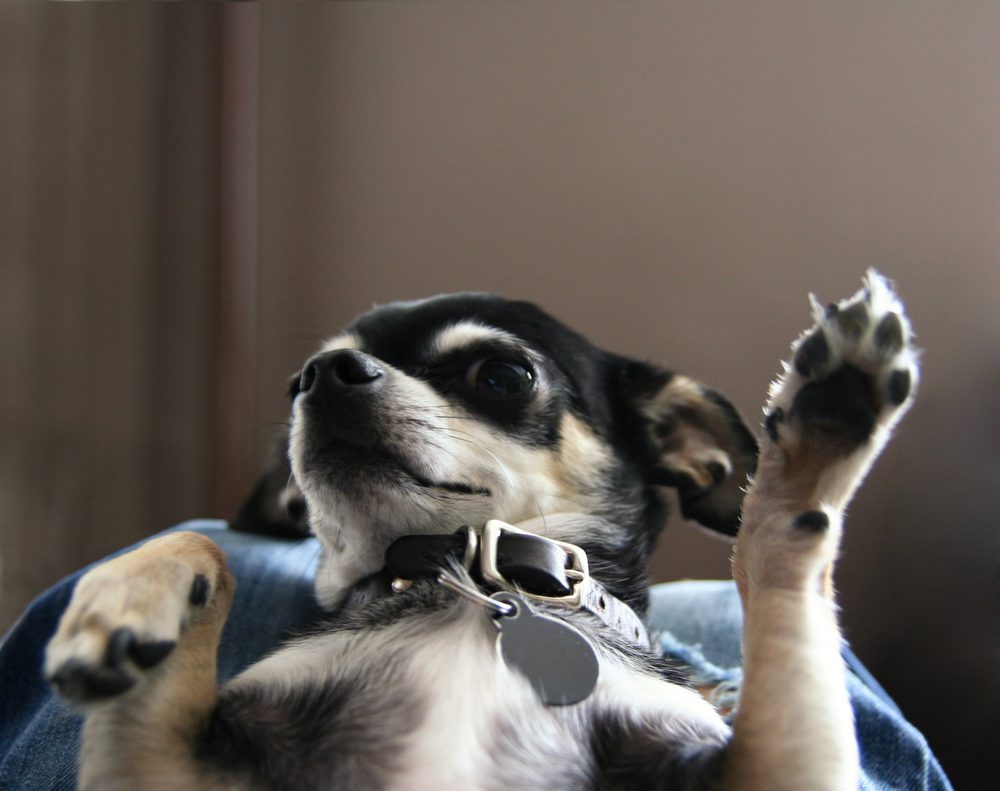Did You Rescue Your Chihuahua?
If you did, then you are to be commended. Thank you on behalf of all of us! But, are you now having behavior issues that you are having trouble dealing with? Do you just not know what to do anymore? There are 5 signs your dog was abused.
Sadly, many Chihuahuas that have been rescued come from previous homes in which they experienced abuse. Children often suffer from behavior problems when they are brought up in an abusive home. But do dogs? The answer is an emphatic YES. How do you know if your dog was abused? There are signs your dog has been
Not All Abuse is Physical Abuse
Not all abuse leaves visible physical scars. Just like children dogs can be verbally and emotionally abused. All dogs are susceptible to it, and it is unacceptable for any dog to have to endure it, but doesn’t it seem especially heinous when it is a tiny little Chihuahua?

Emotional abuse can leave scars that may not be visible, but they can be even more debilitating. So, if you rescued a Chihuahua that could possibly have been abused in the past and you are now having behavior issues it is important that you recognize the signs before you can begin to help.
They are:
- Food aggression
- Separation Anxiety
- Antisocial behavior
- Submission
- Idiopathic fear
Food Aggression with treats is pretty easy to spot, but there are several others to watch out for that could be caused by emotional abuse. Food aggression generally stems from having to fight other dogs for food, as in a puppy mill situation, or in the case of an animal hoarder situation. Signs to look for are;
- Frantic and rapid eating even sometimes to the point of choking
- Standing over the bowl and refusing to move when you come near
- Refusing to leave his food bowl even when you are calling him
- Growling when approached by either a human or another pet
- Snarling or snapping at anything or anyone that comes near while he is eating
Any of these issues could be dangerous, especially when children are in the house. If you are experiencing any of these issues, consult your veterinarian who may suggest an animal behaviorist.
Depending on how severe and the type of aggression is shown, don’t try to correct it on your own unless you are sure you know what you are doing. Don’t Miss: How to Stop Your Chihuahua’s Aggression.
Separation Anxiety can happen especially if the Chihuahua has been rehomed before. There are different degrees of separation anxiety. Usually, if the dog’s anxiety is severe, being abandoned or rehomed is the reason. But, not always. Signs your dog was abused;
- Destructive behavior
- Excessive howling, whining, or barking
- Pacing, panicking and shaking
- Urinating and or defecating

There are many things you can do to help if your Chi suffers from separation anxiety, from crate training to medication, depending on the severity.
Don’t Miss: Training Your Chihuahua, Part V, Housebreaking
Antisocial Behavior can happen when a dog is never allowed to be around other dogs or never allowed near other dogs. Dogs are naturally social beings. They prefer to be in the company of humans or other dogs. In a situation where a dog is never taken for walks will never encounter other dogs, or if the owner always crosses the street or always pulls back on the leash when they see another dog, this can cause a dog to become anxious when he does happen to encounter another dog.

Submission or when a dog is trying to say, “I’m not a threat”. If a dog has been hit or constantly yelled at, to try to avoid it he or she will show submission, trying to communicate the only way he knows how. Signs to look for are;
- rolling over on the back with belly up
- submissive urination
- ears back and flat against the head
- a toothy grin (not to be confused with a snarl)
Idiopathic Fear is excessive anxiety, sometimes brought on by an inexplicable trigger and is often caused by a stressful or traumatic event in their life. Signs to look for are;
- pacing
- flattened ears and tail between the legs
- cowering, hiding
- hair raised on the back of the neck
- drooling
- trembling
- panting
- whimpering
- yawning
- incontinence either urine or bowels
In Conclusion
If you suspect that your rescued dog was abused in any way, talk to your veterinarian who might be able to recommend a professional animal behaviorist or look for a professional trainer in your area that is trained to help dogs with these kinds of issues.